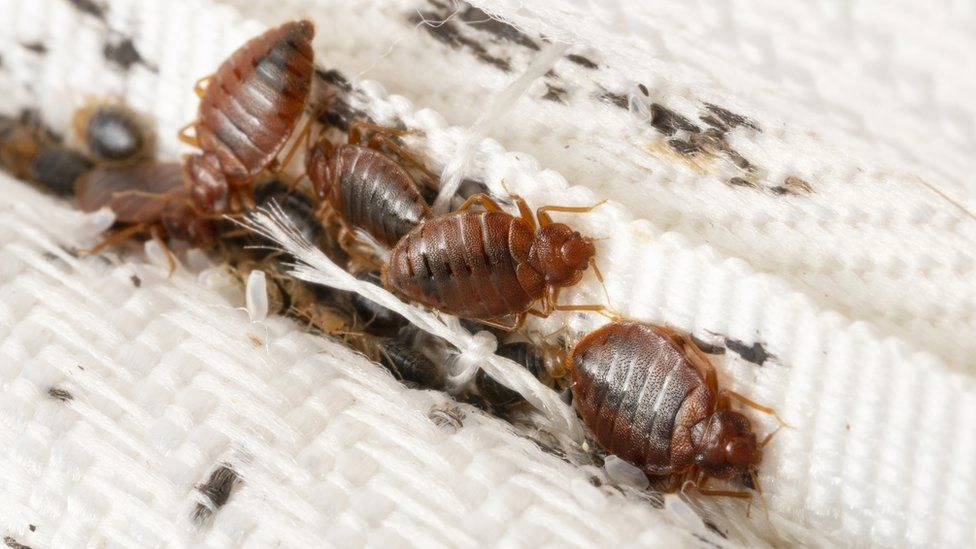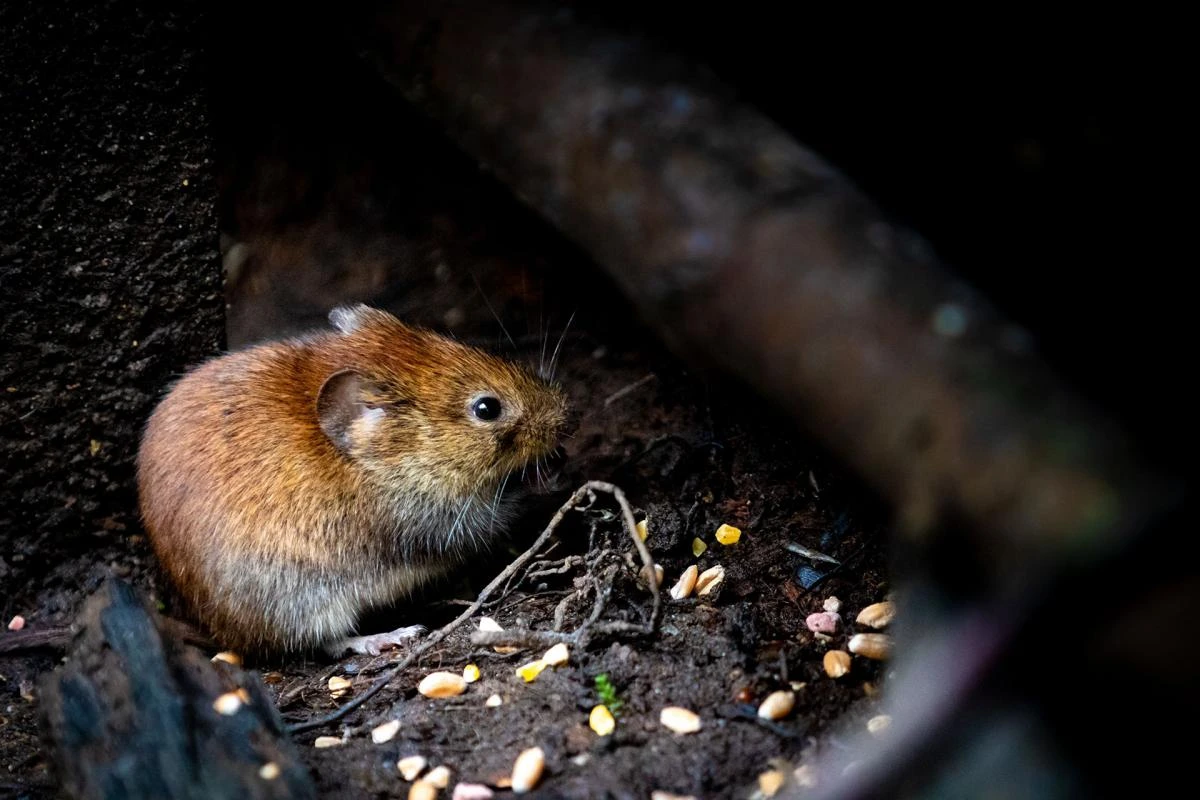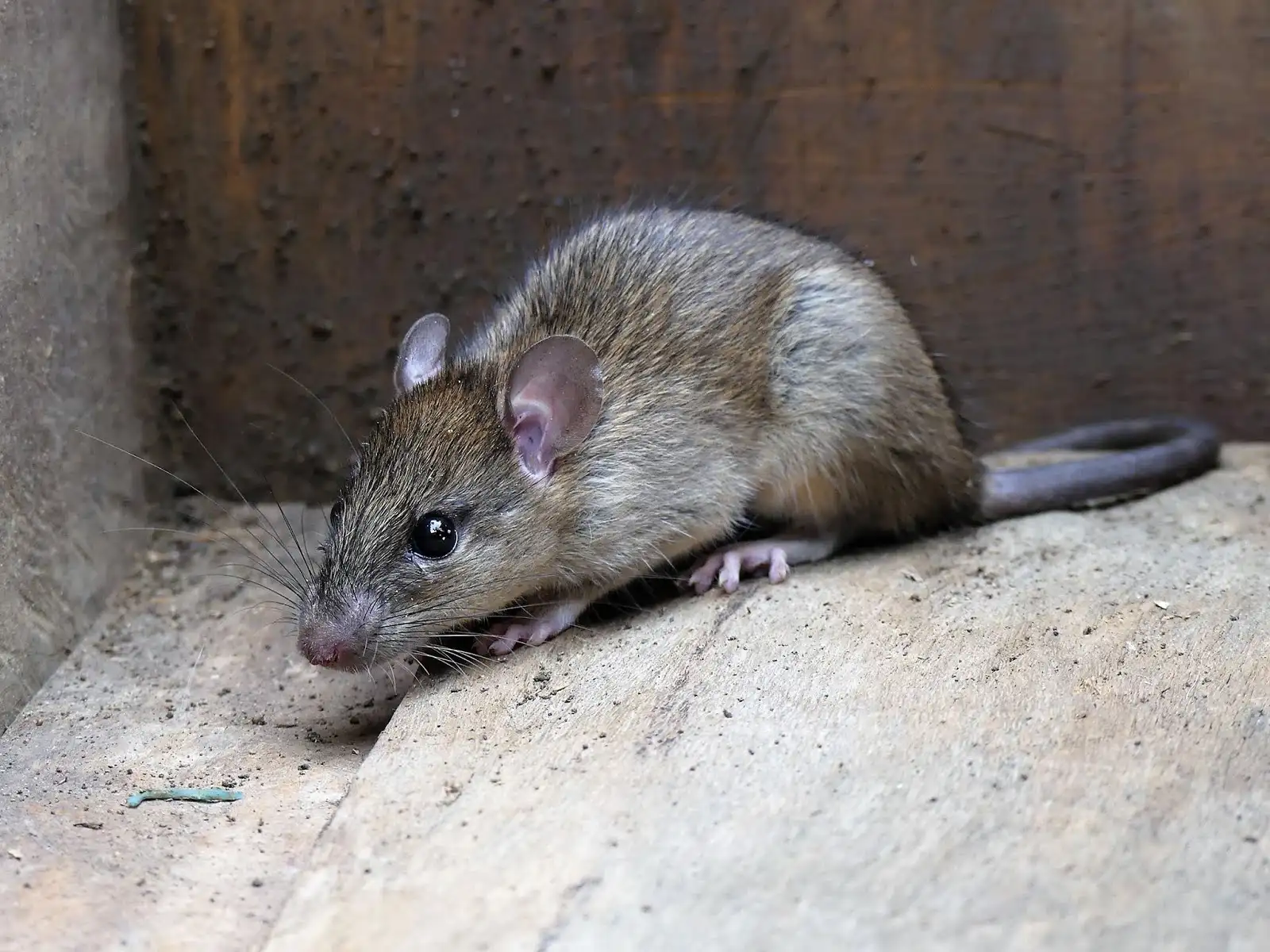Mice
Mice
In the span of one year, 2 mice can develop into a family of 1500-2200 mice. With a sufficient food supply, a mouse population can thus increase explosively.



Identifying Mouse Infestation
House mice primarily inhabit kitchens, insulation materials, and stored goods and materials. Mouse infestation can often be identified by:
- Black, hard droppings and urine traces, found scattered in quiet places and in cabinets.
- Gnawing damage to insulation materials, furniture, electrical wiring, food, and/or packaging materials.
WARNING
Mice can spread bacteria and viruses through their saliva and droppings, such as the Leaky virus (a hantavirus) and Leptospirosis. This spread can occur rapidly as mice gnaw and traverse everywhere. It is crucial to discard nibbled or contaminated food immediately.

Problem
Mice cause various problems:
- The pests can spread disease-causing germs.
- Mice contaminate food supplies with droppings and urine.
- Mice inflict gnawing damage to various materials and products.
CONTROL
When a mouse infestation is identified, you can contact The Pest Expert by calling
or sending an email.
Inspection
One of our staff members will conduct an inspection, visually confirming the presence of mice and determining the causes. After this inspection, the extermination will take place.
Extermination
During the extermination, the service worker will place bait stations where mice
are present. Holes and crevices with visible mouse traces will be sealed with
elastic exclusion paste.
Aftercare
Once the extermination is completed, the service worker will provide advice to
prevent new infestations. A consistent part of our service is the provision of a
self-help kit. This kit allows for more effective control during periods when
extermination by a professional pest control expert is not possible.
